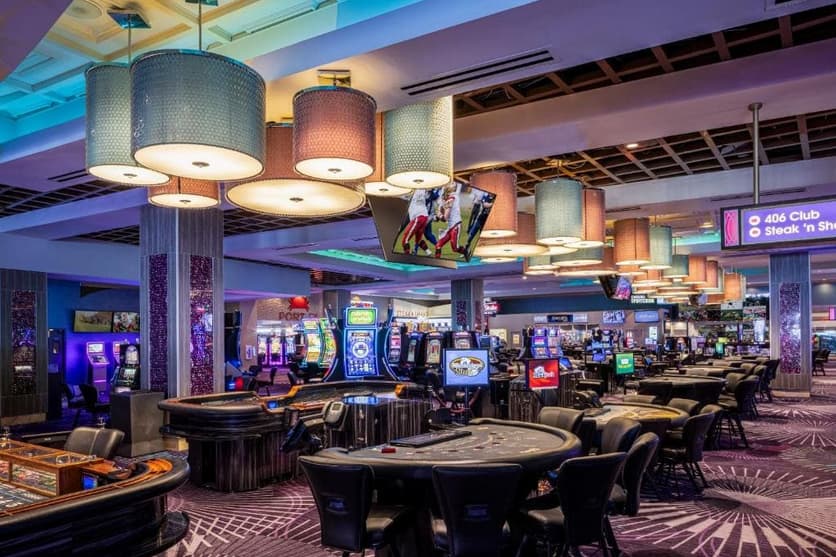Today’s thriving online platforms like GGbet offer immersive betting experiences right from a mobile device. But long before the digital revolution, gambling in Mississippi was rooted in traditions that spanned centuries. From ancient indigenous games to the emergence of luxury casinos along the Gulf Coast, the region’s gaming history is rich, colorful, and full of transformation. Let’s take a journey through the evolution of gambling on Mississippi’s coast — from its earliest days to its high-stakes modern appeal.
Early Gambling Roots and Riverboat Casinos
The gambling along the Gulf Coast has ancient roots. Dockside casino gaming was not legalized in Mississippi until 1990. Similar to Louisiana legislation, the laws allowed floating casinos to operate along the Mississippi River and the Gulf Coast waters. Basic slot machines and table games were offered at these floating casinos (often moored barges), but the transition represented a large economic change.
The Isle of Capri in Biloxi was one of the first places that was launched under the new law in 1992. Small coastal towns were soon transformed into emerging gaming destinations by others who followed quickly. In the early phase, there was an increase in employment and revenue streams for local governments, which will no doubt lead to expansion in the future, the Mississippi Gaming Commission stated.

From Floating to Fixed: Post-Katrina Expansion
Almost all existing casinos on the Gulf Coast were destroyed when Hurricane Katrina hit in 2005. At the same time, the catastrophe served as the basis for a decisive policy change. In Mississippi, a casino rebuilt on land within 800 feet of the coastline was allowed as a result of an amendment to the gaming regulations. As a result of this, construction surged, and operators invested more in permanent, luxurious facilities.
A quick reopening is just one example of the Beau Rivage Resort & Casino quickly reopening and setting a new standard for the region, with high-end accommodations, fine dining, and live entertainment. Island View Casino in Gulfport also benefited from the new legislation, which allowed it to expand beyond its original floating format. They led to a new era in which we started to see Gulf Coast casinos the way modern resort casinos look now, as more than mere gambling facilities.
Economic Impact and Community Revitalization
Rehabilitation of the Mississippi Gulf Coast was a big part of the casino industry. Gaming generates hundreds of millions of dollars in taxes each year for state and local governments, supporting the funding of public education, infrastructure, and emergency services, according to the Mississippi Department of Revenue.
It has also led to growth in other sectors that depend on casinos, including hospitality, retail, and entertainment. Since the old days of Biloxi and Gulfport, tourism has been a renaissance, with expanded air travel at the Gulfport-Biloxi International Airport and increased hotel occupancy rates. Major casino resorts have also created jobs, hundreds of jobs, employing thousands of local residents in dozens of industry sectors.
Diversification and the Future of Gulf Coast Gaming
While the Gulf Coast’s casino industry is still rooted in gambling, it has expanded its offerings to attract a more diverse group of people. Today, resorts conduct concerts, conventions, and culinary festivals to liven them up. Tourists who may not gamble but would rather enjoy the luxury spa, golf course, or treat the property as a beach getaway are catered to with luxurious spas, golf courses, and beachfront amenities.
Mississippi has also gone online and into sports betting in recent years. Since the U.S. Supreme Court struck down the federal ban on sports betting in 2018, many of the Gulf Coast casinos’ in-house sportsbooks have sprouted up. These developments have kept Mississippi competitive with its fellows in Tennessee, Louisiana, and Florida.
Sustaining the Gulf Coast’s Casino Legacy: Looking Ahead
The competitiveness of the Mississippi Gulf Coast will depend on maintaining innovation in the ongoing evolution process. Mobile betting laws will likely need to expand in the future, integrated resort development is expected to occur, and gaming amenities will hopefully become more diversified. Today, fundamental elements of gaming destinations include events, conventions, golf courses, and spas.
As the Gulf Coast has adapted to its experience with Hurricane Katrina and embraced the growing online activities of online betting and esports, it has secured its rightful place in the national gaming landscape.